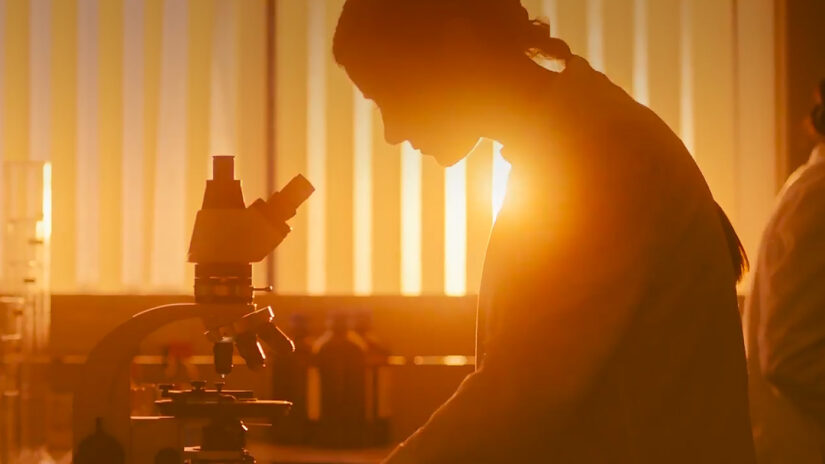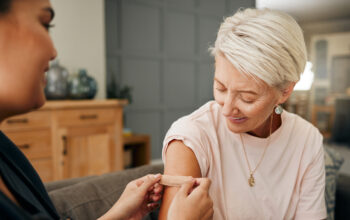Why confidence in vaccines matters today and in the future?

During the pandemic, vaccines were at the top of the news agenda and at the forefront of people’s minds like never before. Scientists were celebrated on magazine covers, and vaccine makers became household names. The largest vaccination campaign in history helped to save millions of lives, protecting people from serious illness and helping our world get back to normal.
But lurking beneath this success story is a more troubling trend. While over 70% of the world’s population received a COVID vaccine, uptake of some other vaccines has fallen. After years of progress, childhood vaccination rates dropped for the first time in 2021, representing the largest sustained decline in childhood vaccinations in approximately 30 years. HPV vaccine rates also dropped amongst young girls. These concerning trends are the reason why the WHO has chosen the theme of ‘The Big Catch Up’ for this year’s World Immunization Week, encouraging people of all ages around the world to catch up on the vaccines they might have missed in recent years.
There are some very practical reasons people have missed these vaccines – when the world went into lockdown, non-urgent parts of the healthcare system shut down too, and people stayed home for fear of infection. Schools were closed, and community outreach programs were paused. But the WHO also notes that misinformation is a driving factor. Anti-vaccine narratives and groups existed long before the pandemic, but misinformation about the COVID- 19 vaccine added fuel to their fire and brought harmful conversations into the social media feeds of people around the world. The danger is that this starts to negatively shape how people feel about all vaccines, eroding confidence across the board.
Add to this another challenge facing vaccines. The more effective and widespread they are, the more their benefits become invisible, and often taken for granted. Thanks to vaccines, many of us have never experienced what it was like to see children paralyzed by polio or suffer serious complications from meningitis or measles. As these threats fade in our collective memories, there is a danger that the urgency to protect our children against them fades too.
That’s why it’s so important that we continue to remind people what vaccines have achieved, and how they continue to make a positive impact in the lives of people around the world, as we illustrated in our recent #VaccinesForLife campaign.
It’s natural for people to have questions and concerns about their health and well-being, and the health of their families. But we need to make sure they get answers rooted in facts and science, from trustworthy sources, rather than mis- and disinformation.
We know that healthcare professionals hold the most influential role when it comes to vaccination decisions. But we can’t leave this responsibility solely on their shoulders. All players in the vaccine ecosystem have a responsibility to bolster a more positive conversation. This includes the vaccine makers.
It’s why we continue to use our voice to speak up for vaccines and encourage a more fact-based narrative. It’s also why we support the Big Catch Up campaign to get routine immunization back on track, so no one suffers unnecessarily from a vaccine-preventable disease.
As the people who develop and deliver the vaccines, we have the facts that can explain and reassure people about the rigorous process vaccines go through to ensure they have an excellent safety and efficacy profile. From clinical trials with multiple stages involving thousands of volunteers, to an approval process where we must achieve safety and effectiveness standards set by independent regulators, to the frequent and rigorous quality checks during manufacturing (which makes up 70% of any vaccine production time), and the ongoing monitoring once vaccines are in use by the public. All these steps are overseen by people who are not only skilled experts, but also passionate about helping people benefit from the protection and progress that vaccines can provide.
Many of these scientists and researchers are hard at work developing new vaccines that could protect people against diseases like influenza, RSV, dengue, and dangerous bacterial infections. The potential benefits of these new vaccine candidates make it even more important that we bolster vaccine confidence today and lay the groundwork for their acceptance tomorrow. Vaccines are one of our most powerful public health tools, offering the chance to help reduce hospitalizations and help people around the world live healthier lives – but they only work if people feel confident enough to get vaccinated.
This blog was originally posted on Vaccines Europe website on 25 April 2023.
Author






